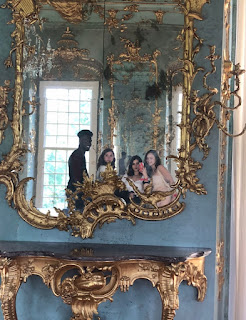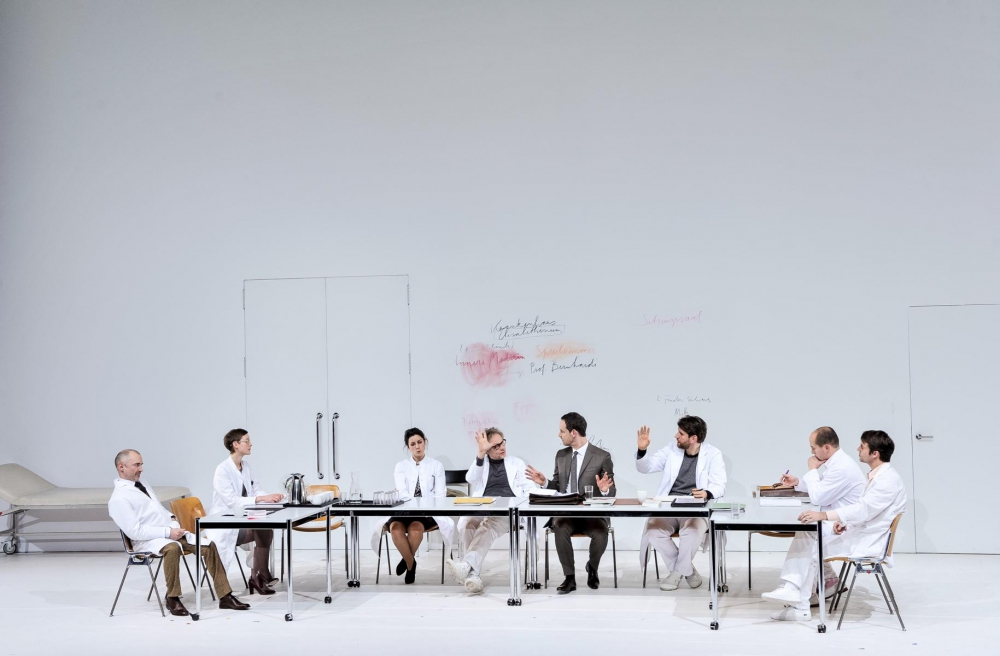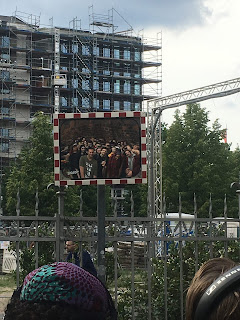Probably as unadulterated as my feelings will get. Rotten after Status Quo ended in the cafe at Shaubuhne.
Sitting in Status Quo, I had a hard time staying still. I was constantly fidgeting/shifting/moving. This was definitely a hard production for me to watch. I’m trying to write this before I get other opinions that may sway me because I had such a visceral and physical reaction to the play.
I felt empty at the end of the show. I felt defeated. And as a woman seeing a play that is supposed to point out the plight of women I don’t think that’s a great thing. I don’t feel anything close to enlightened or supported. I just watched things I already knew played out in front of me without a call to action or a message. It was unmoving.
The humor applied to this subject made me incredibly uncomfortable. Or perhaps it is just the perceived humor on the audiences part. But nonetheless I was incredibly uncomfortable by the sheer amount of laughter directed towards what are actually real situations that take place. I don’t think peppering humor in this play was the correct way to handle it. All it was doing was making uncomfortable and incredibly real situations palatable to an audience. How are we supposed to take anything away from a show when all we get are laughs and not an unsettlement.
I think while this play was a step in the right direction, it did not go far enough. It was a baby step where we need a leap. Own this topic if you are going to take it on, don’t just dance around it. I think this did a disservice to women in these situations because it just made a sort of mockery of them. Let alone watching a white man live through what women live through every single day.















































